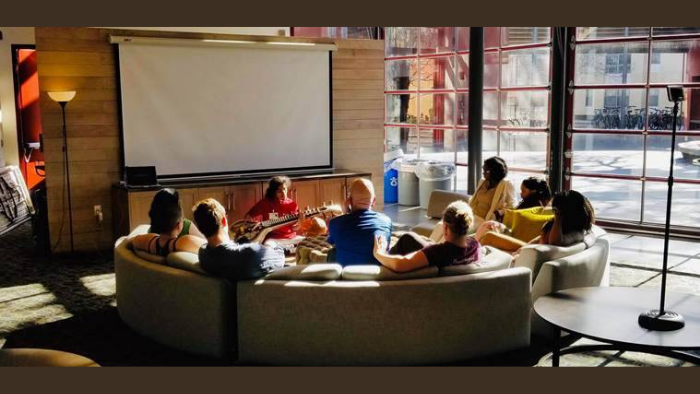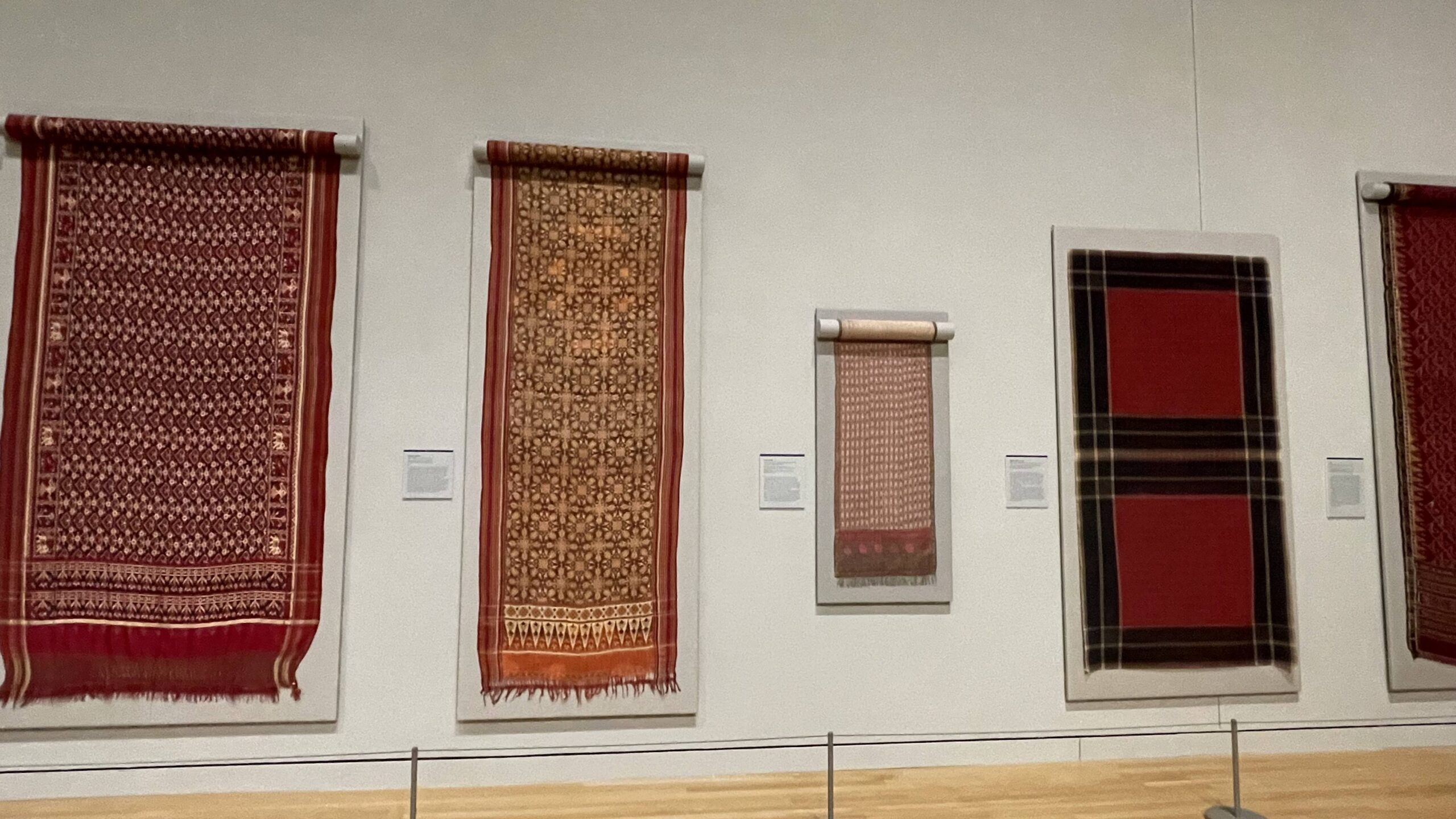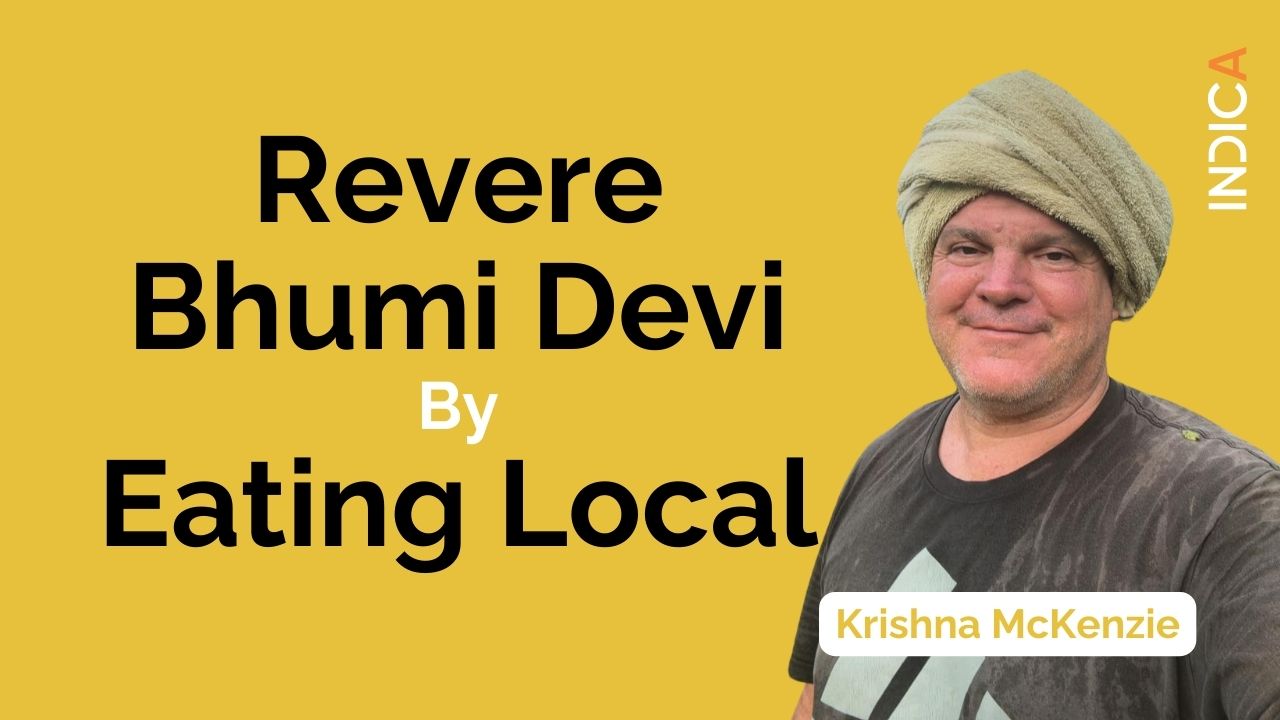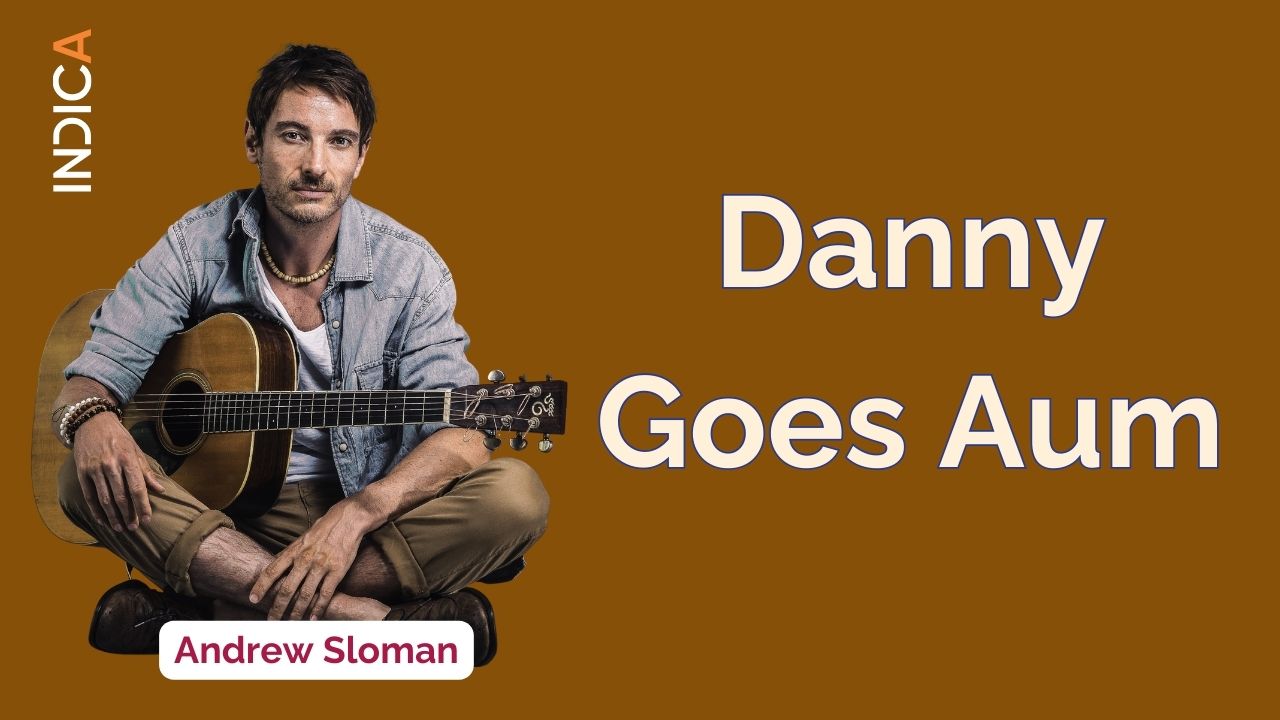Dr Tara Rajendran spent her childhood in cancer wards when her grandmother was suffering from acute lymphoblastic leukemia, a type of cancer with a not-so-great prognosis. She saw her mother assisting her grandma along with many on-call doctors. That was one of the earliest memories she has that inspired her to take up medicine.
CSP spoke to Dr Tara Rajendran, physician-musician, who began Oncology and Strings, a lecture-concert series through which she advocates the importance of music for palliative cancer care. In this three-part interview series, we will learn more about Dr Tara’s journey in music and medicine.
“When my grandmother was ailing from back pain, my mother used to play the song “Mahaganapatim” from the movie Sindhu Bhairavi. She enjoyed the violin that played against the ocean waves in the background. The music alleviated her stress and anxiety. My family revered carnatic music, and eventually enrolled me to music classes. Soon, I started playing at national and international forums, both vocal and instrumental; now I concentrate only on the veena,” reminisced Dr Tara.
When Dr Tara was studying medicine, she parallely started pursuing her undergraduation and post-graduation in Veena at Annamalai University. In her final year of medical school, she had to spend two weeks in the labour room. During the 12-hour shift, she saw many patients come in and go, that was exhausting. One day, when she got home after her night shift, she decided to pick up the veena. “I was hungry, lacked sleep, and I also had a lump in my throat. But, all that disappeared, as I played the veena. Music definitely had an alleviating effect,” said Dr Tara.

[Mozart's Sonata has been studied with respect to paediatric epilepsy, and the outcome showed that epilepsy could be controlled and the frequency of seizures can also be reduced.]
Dr Tara went to Harvard Medical School for a clerkship program. The program allowed her to choose an elective, and naturally, she chose oncology. When she got there, her mentor who was the advisory dean of Harvard Medical school saw her passion for oncology and music. He guided her to a music therapist at Drexel University of Philadelphia, who was a music therapist, conducting large randomised studies. Later, Dr Tara saw that Harvard itself has a lab that studies the effect of music on psycho-neuroendocrinology. The study saw both musicians and non-musicians. Only after that stint, Dr Tara saw how vast this area of research was.
In the US, many such clinical trials take place, but that scenario had not set in when my grandmother was in the hospital.
She was at Stanford University in February 2019 pursuing another clerkship. Whenever she met patients, she would also introduce herself as a musician. “I had a patient, a Native American, who asked me what instrument I played. I told her I played the Veena. She obviously had no idea what the Veena was. I showed her a video of the Veena that fascinated her. Walking back home, an idea flashed through my mind. I thought of presenting music concerts to show that music has no borders,” remembered Dr Tara.
When Dr Tara walked into the clinic at Stanford at seven in the morning, she heard live music being played, either a cello or a piano. And when she entered the chemo-infusion room, there would be recorded music playing in the room. The ambience was soothing, and when she left the clinic at eight in the night, music would still be playing. “I found that cathartic and at the same time, I also lamented slightly, realising that this system does not exist in India. We have a very ancient school of music with very complex musical grammar. Apart from the traditional classical, and folk music, we have so many genres of music. I feel we have underutilized the potential of our music system,” said Dr Tara.

In India, we have a platform that gives accreditation to music therapists - previously it was the Indian Council for Medical Research (ICMR) - now it is the National Medical Commission. However, there aren't any set guidelines for this program owing to India’s vast diversity in music. We need a body of physicians, therapists, musicians who can tailor these guidelines. Furthermore, to publish these guidelines, evidence-based studies must be conducted, and published in high-impact journals. Also, the genres of music to play must also be identified.
To bridge that gap between medicine and music, Dr Tara started Oncology and Strings. Dr Tara regularly visits cancer centers, cancer hospitals and medical colleges, where she advises medical students to take randomised control trials with the guidance of an oncologist or even in labour room wards, or in patients with Parkinsons or in stroke rehabilitation centres. As a medical student, she engaged herself in conducting many such clinical trails.
Now the above mentioned music therapy is clinical, but when you visit a clinic or a hospital, and you hear music being played in the corridor, that passive listening can also be therapeutic to not only patients, but also to doctors, nurses, other healthcare staff, and caretakers. This is therapeutic music therapy.
Dr Tara also works with palliative care specialists, where she distributes her own recorded music to the specialists. “As a child, I have given many concerts, and I have seen that my audience members comprised of erudite music scholars, or those who have knowledge of music. I wanted to reach out to those who were in need,” explained Dr Tara. She came back to India and launched Oncology and Strings in Kasturba Medical College, her alma mater, and later went to TATA Memorial Centre.
To be continued….




